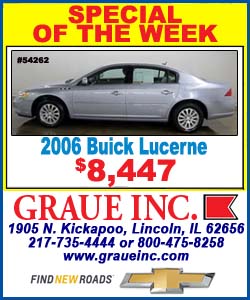|
 He insisted he made the right move when he decided to go for a
winning field goal on a second down in overtime at Minnesota on
Sunday even if the decision did not pan out. He insisted he made the right move when he decided to go for a
winning field goal on a second down in overtime at Minnesota on
Sunday even if the decision did not pan out.
Trestman called on Robbie Gould for a 47-yarder that sailed wide
right rather than run another play or two, and the Bears suffered a
crushing 23-20 loss. Trestman acknowledged he second-guesses himself
"a lot afterward."
"I want to be perfect for the guys," he said. "And when things don't
work, I hold myself accountable for it because I'm making every
decision in the best interest."
He was adamant: Going for the field goal was the right call at that
moment, that the decision did not fuel any second-guessing in his
mind.
"It does not. It really does not," he said.

The Bears are in a tough spot trailing Detroit by a game in the NFC
North at 6-6, with the Lions holding a head-to-head sweep and their
shot at a wild card looking about as long as the 66-yard attempt
Gould missed at the end of regulation.
They've dropped six of nine, with a Monday night matchup against
Dallas up next, and it's not clear if the injured Jay Cutler (high
left ankle sprain) and Lance Briggs (shoulder) will return.
Trestman did not rule out either player but would not say if they
will practice on Thursday. Cutler hopes to return against the
Cowboys but was noncommittal during his weekly appearance on
Chicago's WMVP-AM 1000.
On Monday, the big topic of discussion was the decision to turn to
Gould rather than try to shorten the distance.
The Bears were moving the ball after Minnesota's Blair Walsh had a
39-yard field goal wiped out by a holding penalty and missed a
57-yarder.
Chicago took over at its 47. Matt Forte ran for 24 yards over the
next five plays to put the ball on the 29, and that's where Trestman
decided it was time to end this thing.

So he called on Gould, one of the most accurate kickers in league
history, but the plan backfired.
Minnesota went the other way for a winning 34-yard field goal by
Walsh that dealt a serious blow to Chicago's playoff hopes and
sparked a discussion about Trestman's decision.
[to top of second column] |

Why didn't he call at least another play to try
to get closer, particularly given how the offense has moved this
season and the defense has struggled?
Trestman said the ball was in the middle of the field, the kick
was within Gould's range and he didn't want to risk a penalty or
a fumble.
But is the angle of the kick that important in a dome, where
there's no wind?
Something else to consider: Although Gould is 6 of 7 on attempts
from the 40 to the 49 this season, he's just 72.2 percent from
that range in his career.
By comparison, he's converted 90.6 percent on attempts from the
30 to 39.
"I didn't do it from an analytics standpoint," Trestman said. "I
did it from having been around Robbie the entire year and
knowing how he kicks the ball and watching him kick in practice.
I had no doubt that he was going to make the kick. You could say
that about any kick. But there wasn't analytics involved as much
as there was, we're clearly in his range. We're in the middle of
the field. We don't know what's going to happen on the next
play, but it has a chance of not being in the middle of the
field. I thought that was well worth the risk."

He did not consider the possibility of fatigue playing a role in
the miss, with Gould playing just hours after the birth of his
son.
The decision to attempt a field goal also went against the grain
of a coach who's been willing to gamble. Trestman's gone for it
on fourth down several times this season, including a key
fourth-and-1 conversion that helped seal a win at Green Bay.
"Every decision to do the things that we do, are based on this
game," Trestman said. "So I didn't call on other experiences in
other weeks, other than to make the decision that was best for
our team yesterday."
___
Online:
AP NFL website:
http://pro32.ap.org/
[Associated
Press; ANDREW SELIGMAN, AP Sports Writer]
Copyright 2013 The Associated
Press. All rights reserved. This material may not be published,
broadcast, rewritten or redistributed. |